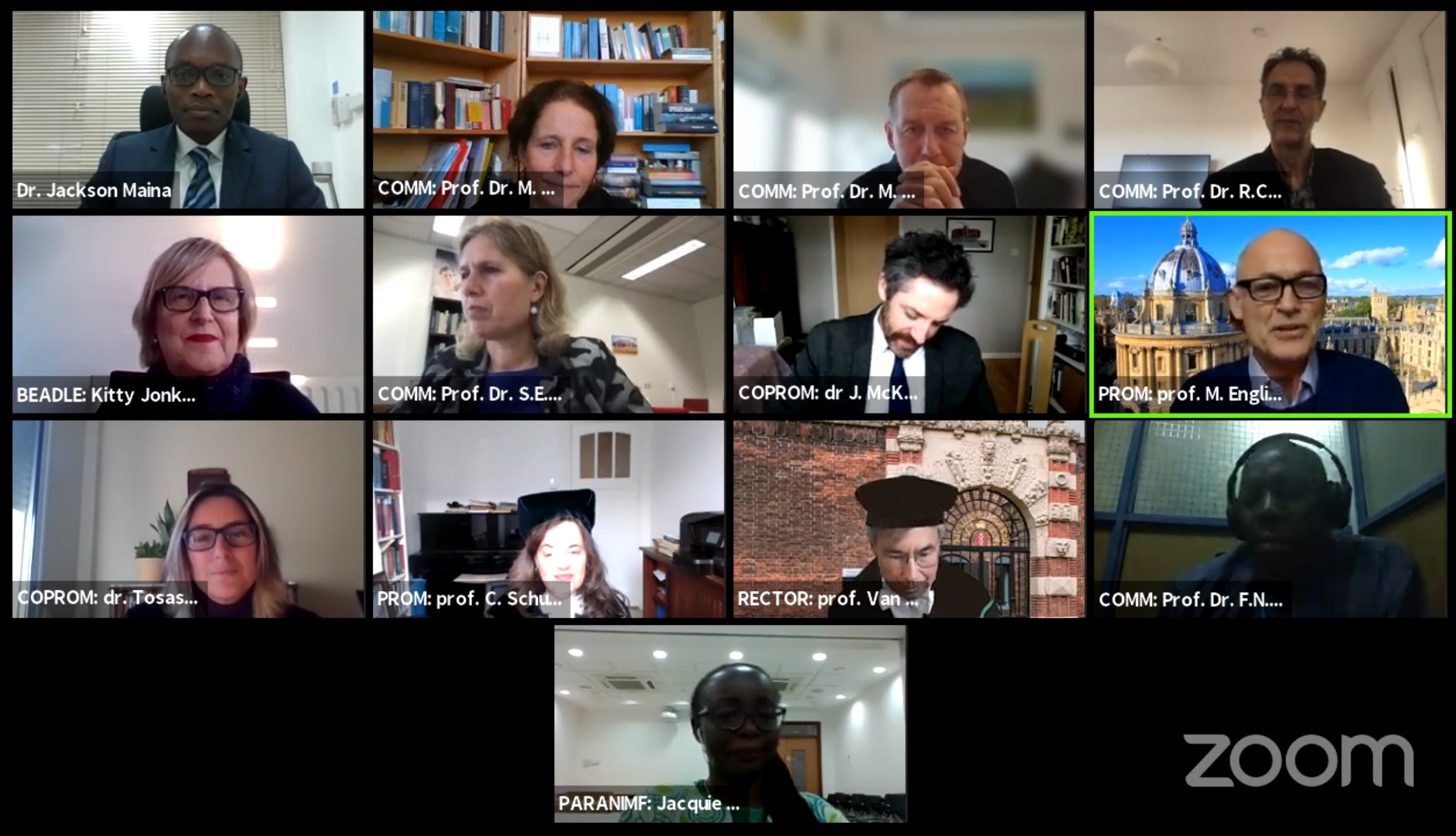
26 Feb Dr. Michuki Maina, research pediatrician from Kenya successfully defends PhD thesis
On February 24th, Dr. Michuki Maina presented his thesis titled “Infection prevention and control and antibiotic stewardship: two sides of the same coin in the prevention of antimicrobial resistance” before his promotors (Prof. Dr. Constance Schultz and Prof. Dr. English) and co-promotors (Dr. Jacob McKnight and Dr. Olga Tosaa- Auguet). The basis of his doctoral research was to investigate infection prevention and control and antibiotic stewardship in the clinical setting to prevent antimicrobial resistance (AMR).
It occurs that patients pick up additional infections in hospitals, leading to severe and sometimes deadly infections. This issue is even more pronounced as the antibiotic pipeline narrows. “Novel antibiotics are not being developed fast enough. In combination with their inappropriate usage, AMR is on the rise and endangering patients’ lives. We need to tackle both in order to improve the whole system,” says Michuki. Dr. Michuki Maina is a trained pediatrician in Nairobi, Kenya where he completed medical school at the University of Nairobi. “By being on the frontline through my clinical practice, I witnessed current issues in the ward. I was compelled to find practical solutions to the problems I was encountering, and thus decided to partially focus my career on research.” Michuki currently devotes about 20% of his time to clinical work and 80% of his time to research.
In his 4-year research project, part of the KEMRI Wellcome Trust Research Programme, Michuki investigated the appropriateness of antibiotic prescription and usage. “Understanding the issue at hand is the only way to find practical solutions and change the status quo.” Michuki demonstrated that less than 1% of hospital admissions used laboratory data to underpin choice of treatment. This in turn had an effect on the appropriateness of antibiotic use in these settings.
Michuki says the next step is to design and implement guidelines for clinicians in Kenya to prescribe treatment more appropriately according to symptoms and data. This, however, would be the subject of another PhD project. Michuki published seven peer reviewed papers as part of his thesis and one policy brief that was sent to the Kenyan Ministry of Health who is keen to adopt some of the findings. Michuki has close ties with the Ministry of Health through his involvement in the National Infection Prevention and Control Technical Working Group. “It’s important to appraise the Ministry of Health through every step of the research. In the end, the government is the gatekeeper to the healthcare system, and we must therefore involve it in our activities.” The Ministry of Health was very much involved in the research activities, which made his research findings easily translatable in a policy brief.
Although his project was going to kick-off in 2017, the Kenya public hospital staff strikes led to a 5-month delay. Michuki is very grateful for his mentors: promotors and co-promotors who helped him through the PhD journey and stood by his side when he was delayed at the start of his research. Michuki had monthly virtual meetings with the all the supervisors. He met physically once a year with his promotors Prof. Dr. M. English and Prof. dr. C. Schultsz and co promoters in Oxford. Prof. English is based in Nairobi and worked closely with Michuki, who mentioned that Prof. English was a great example for him, as he is himself an experienced researcher clinician.
His plan for the future is to maintain his position as research pediatrician and carry on the quest to improve the quality of pediatric and neonatal care and antibiotic stewardship in Kenya. “It was tough, and there were long days and long nights. But we must leave the world as a better place than it was. This is what I aim to do as this is where my children will grow up. It is vital to keep striving for better quality care.” We congratulate him on his PhD and wish Michuki the best of luck in his future endeavors!
